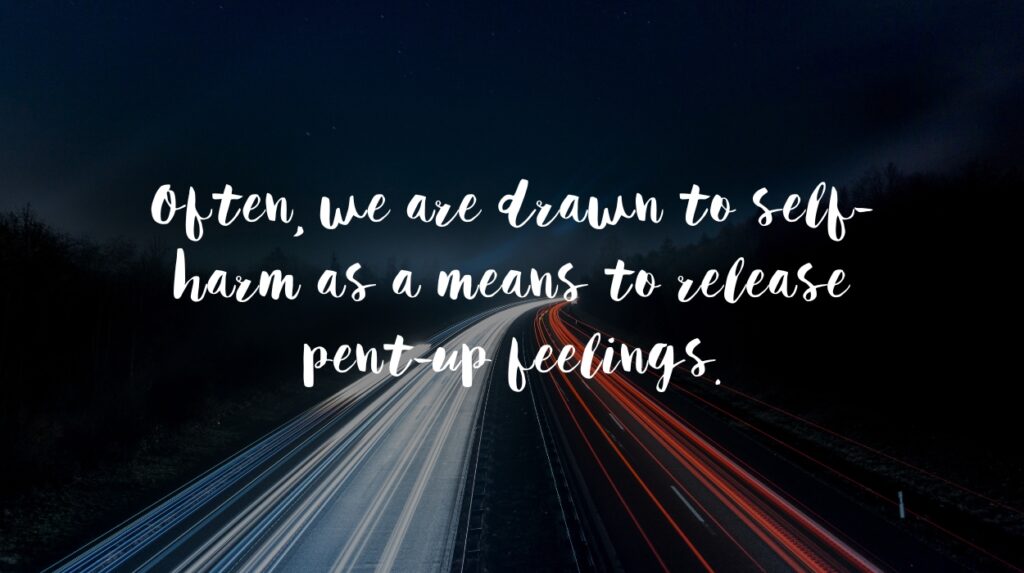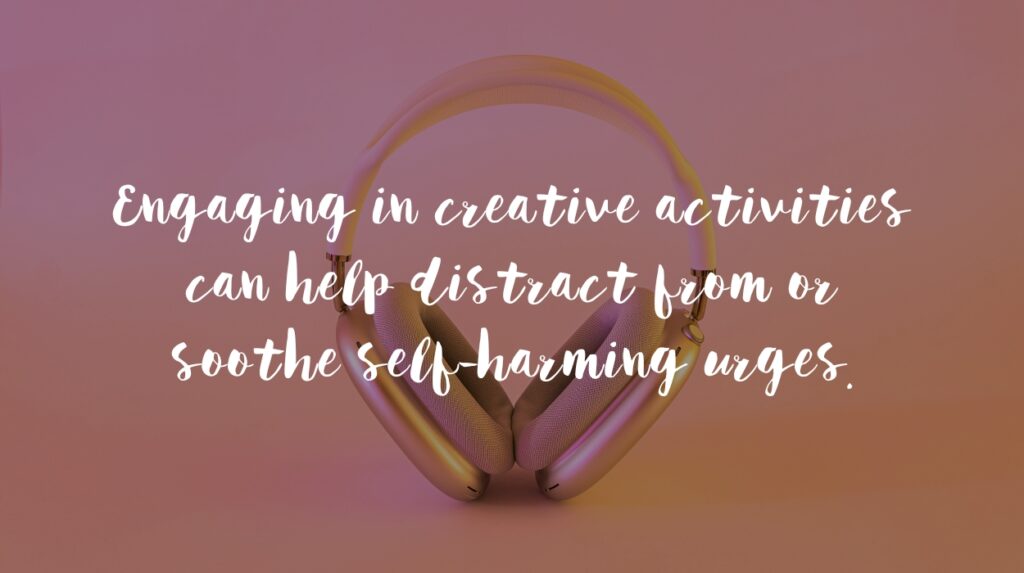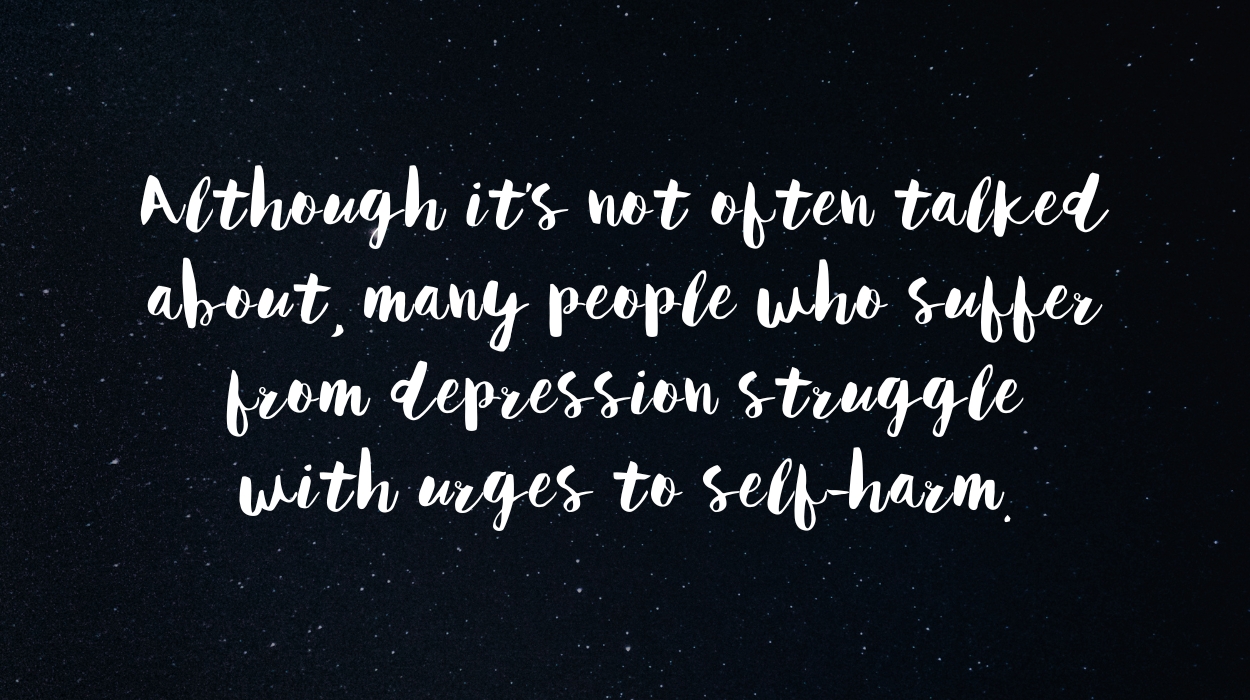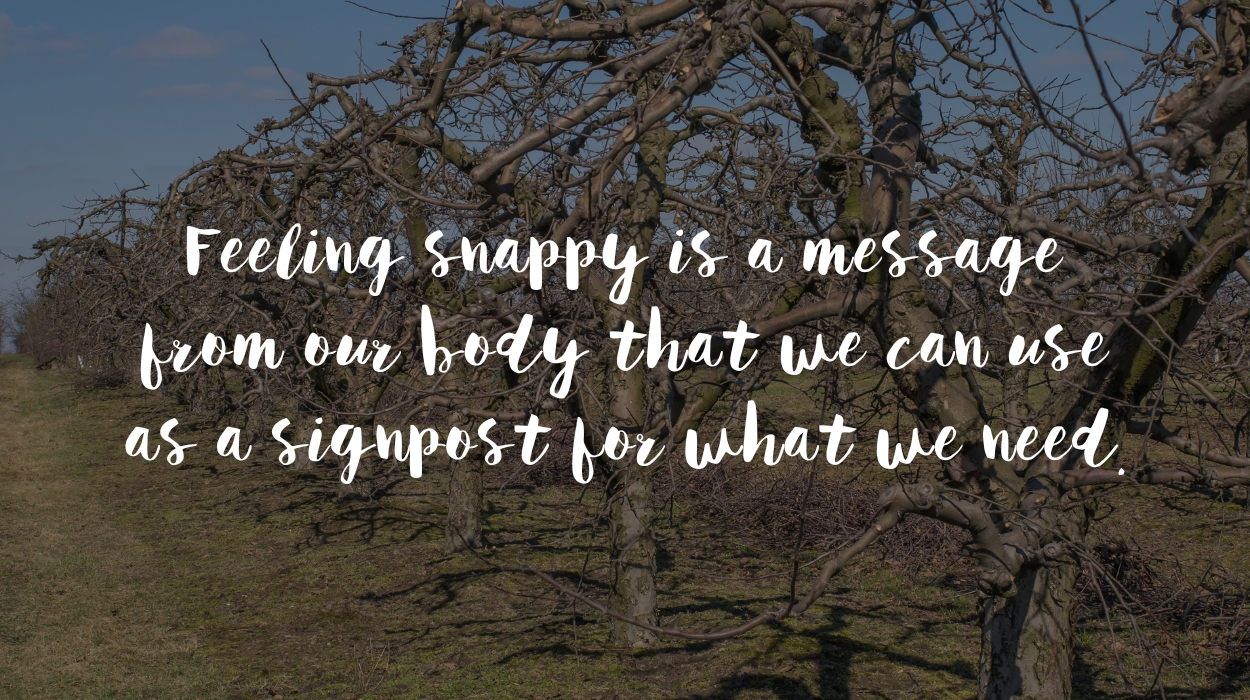How To Distract Yourself From Depression Or Scary Thoughts
Self-harming urges are a common symptom of depression and can be very powerful. Here are seven tactics to try to help distract from scary thoughts.
Depression comes with a variety of symptoms, which vary from person to person. Although it’s not often talked about, many people who suffer from depression struggle with urges to self-harm.
Obviously, hurting yourself isn’t desirable or healthy – but knowing this doesn’t help keep the scary thoughts at bay. Self-harming urges can be extremely powerful, and it takes a lot to over-ride or ignore them.
We talked to members of our community about the tactics they employ to keep safe. We’ve summarized the various ideas they shared below.
Remember, we’re all individuals – some of the suggestions below won’t appeal to you (some might even seem strange!), but others might be helpful. Please also be mindful that different things work for different people, so if you try something below that fails to help you, it doesn’t mean you’re a failure.
1. Explore Your Feelings

Often, we are drawn to self-harm as a means to release pent-up feelings. When you feel that urge to harm, see if you can ‘step back’ from yourself and your situation for a moment to examine your feelings.
- Try to pinpoint exactly how you’re feeling. Are you angry? Are you anxious? Do you feel lonely? Think of three alternative outlets for the emotion that you’re experiencing that don’t involve hurting yourself (doing this will engage your ‘thinking’ brain which will be helpful in itself). Choose one that is most accessible to you right now, and see if it helps.
- Think about the object you are planning to harm yourself with. What would it say to you if it could talk? Why? What would you say back to it?
- If something specific has upset you, write about it in a journal and pay particular attention to your feelings. If someone has upset you, write them a letter, explaining why you’re hurting (you don’t need to send the letter, the act of writing in itself can be healing).
- This one requires pre-planning, but if you self-harm regularly make a list of reasons NOT to self-harm. It’s best to do this when you’re feeling OK. Everyone’s list will vary. You could also write down some reasons why you do NOT deserve to be hurt. Keep a list of where you usually self-harm (perhaps alongside items you might harm yourself with). When the scary thoughts come, read the list.
2. Use A Distracting Object
Of course, at times we may be too upset or overwhelmed to explore our feelings. In these cases, it’s important to find other ways to distract ourselves.
One of the most simple ways to do this is to get a small ‘anti-harming’ object that you can fiddle with when urges start plaguing you. Again, this requires pre-planning, but once you’ve found an object you like you can always keep it with you – meaning you’ve got a distraction to keep your hands busy with everywhere you go. Here are some items recommended by members of our community – perhaps one will work for you.
- Spinner ring
- Popping pea toy
- Good old Bubble wrap
- Metal mandala or magic loops
- Tangle toy / textured tangle toy
- Twist’n’lock blocks
- Teether
- Slinky
- Worry stones
3. Distract With Creativity

Engaging in creative activities can help distract from or soothe self-harming urges. They engage your senses, keep your hands occupied, and draw on different parts of your brain. The feeling of accomplishing something in difficult circumstances can also boost your mood.
- Our community LOVES adult coloring. It’s calming and requires focus, without being too demanding.
- If you’re crafty, knitting, sewing, cross-stitching, and crocheting can all help. They require concentration and keep your hands busy, plus you get a pretty object at the end of it.
- Cooking is good for engaging the senses and getting you moving. Plus you get to eat what you make, which can be comforting.
- Gardening. Being with nature is grounding, and the physical exertion will get your endorphins grooving.
- Visual art – drawing, painting, collage, etc, can help you ‘live out’ what you want to do, or help you express how you’re feeling. You don’t have to be ‘good at art’ to feel the benefit.
- Listen to music that expresses how you’re feeling, or sing or play an instrument.
4. Release It Physically
Physical activity can help shake off the urges to self-harm; especially those triggered by angry feelings. Here are just a few ideas that might help:
- Walk/run outside
- Dance wildly inside
- Rip up paper
- Throw a bag of ice against a wall outside or on the bathroom floor (the smash is very satisfying, and it’s much safer than breaking glass)
- Throw stones in the sea
- Slash your recycling: Plastic bottles, cardboard, and old clothing can all feel good to cut
- Scream
- Hit a cushion, or slam your pillow onto your bed/wall/sofa
- ‘Wring out’ a tea towel- or a sheet of bubble wrap as hard as you can
- Kick a football against a wall
- Smash a melon
5. Engage Your Sense
Stimulating our senses (touch, sight, taste, smell, hearing) can be really helpful in distracting us from our thoughts – especially if we’re feeling sad (in need of comforting) or are craving sensation/feeling. Our community suggested the following sensory activities:
- Having a deep bath with bath bombs / nice smellies
- Stroking a blanket with a silky trim
- Rubbing body lotion into the part of your body you want to harm
- Playing with Mohdoh / Aromadough – engages the senses of touch AND smell. Scents like lavender can be calming.
- Playing with putty
- Lighting candles or incense
- Watching disco lights
- Eating chocolate (or your comfort food equivalent!)
- Run your hands through a bowl of sand, rice, or lentils.
6. Reduplicate The Behavior
You can sometimes satisfy the urge to hurt yourself by replicating your harmful behavior in a less painful way. For example:
- Keep a hair bobble or elastic band around your wrist and ping it.
- Use slap bands
- ‘Draw blood’ by drawing red lines onto your body with food coloring, lip-liner, or a Sharpie
- Doodle on the area you want to harm. Simulate what you want to do, then doodle words patterns, or shapes. ‘Spending time’ with the place you want to harm can really help take the urges away.
- Paint a wound on yourself with henna. The next day, you will have a ‘scab’ to pick, and a scar to reveal underneath it.
- If you hit, invest in a punch bag or pummel your pillow.
- If you burn, try a slightly too-hot bath.
7. Blurt It Out
If you don’t feel safe, we strongly recommend you talk to someone else about your urges. It’s so hard to accept help, especially when you feel unworthy, but you really don’t have to deal with this alone. Here are some people you can share your thoughts with:
- Contact a trusted (and supportive) friend or family member.
- Call a helpline. Sane provides crisis support between 6 pm and 11 pm, 365 days a year on 0845 767 8000. The Samaritans provide 24-hour confidential emotional support. It is also free to call them and their number won’t appear on your telephone bill 116 123.
- If you don’t like using the phone, you can email the Samaritans (jo@samaritans.org) or use an online crisis service such as IMAlive.
- Seek medical support. You can call NHS 111 for 24-hour health advice and information on 111. Calls are free from landlines and mobile phones. You can ask to be seen by the duty psychiatrist at your local A&E. If you don’t feel safe and are worried about an immediate risk of harm, then please either call 999 and ask for the police or ambulance service.
- Finally, you can talk to us! We don’t provide a crisis service (please use one of the options above if you are in immediate danger), but there are so many people in the Blurt Community who have been where you have been and can help you through. You are not alone.
Sharing is caring: Please share this post to help others, you never know who might need it.









